When we examine the political and philosophical ideas of the Constitution of 1824, we realized how much Brazilian politics of the time was complex and contradictory. The Magna Carta of the Empire reflected not only the desire for a sovereign national identity, but imposed, based on the will of D. Pedro I, power structures that determined the course of the young country. More than a simple document, the 1824 Constitution was the maximum expression of political philosophy of the period and political ideas dominant, revealing a dispute between a nascent democracy and the remnants of absolutism colonial. This tension between the philosophical ideas Enlightenment and absolutist governmental practice characterized the Brazilian politics during decades.
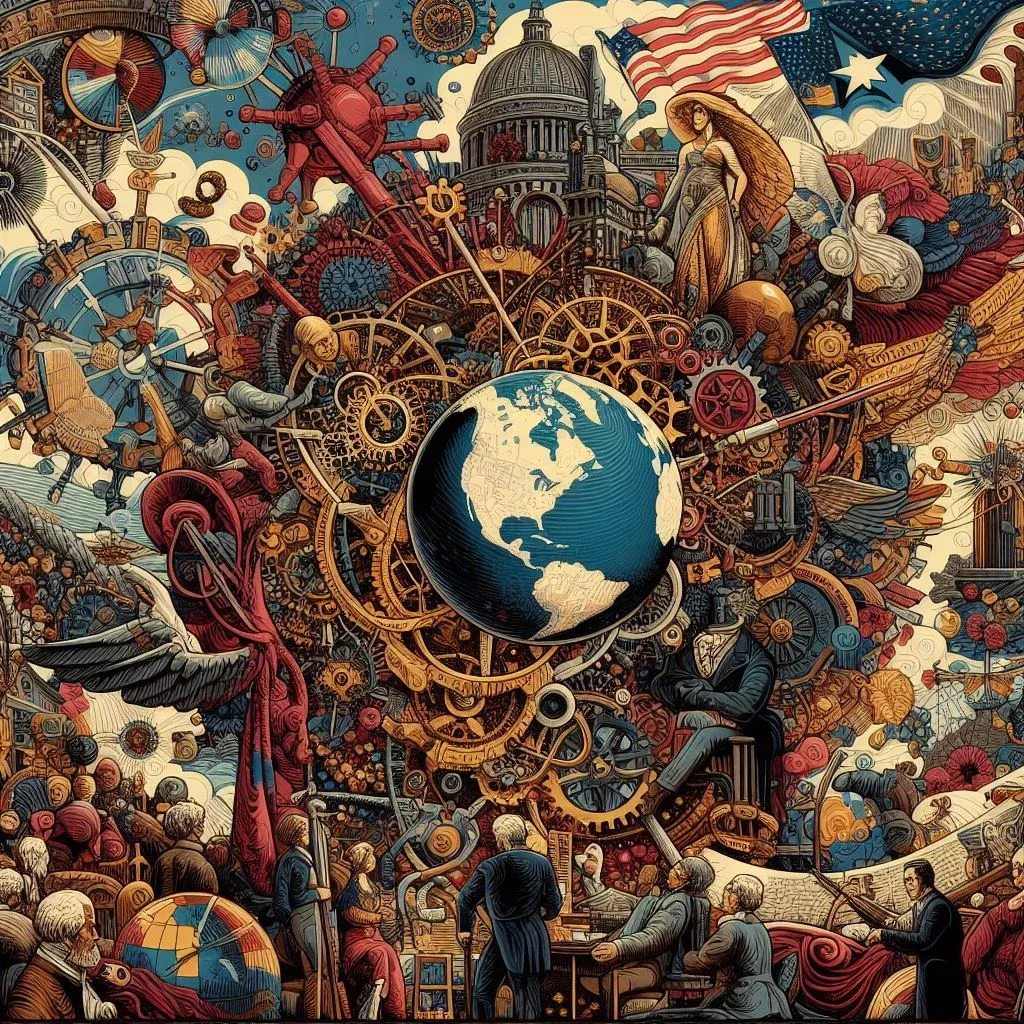
Key points to understand the Constitution of 1824
- The document signified the transition from a colony to an autonomous empire.
- He infused ideals of unitary and hereditary monarchy into the structure of government.
- The consolidated political configuration reflected the desire to D. Pedro I.
- He distanced himself from Enlightenment ideals by adopting the census vote and Catholicism as the official religion.
- It represented the tensions between liberalism and centralized control, which would come to shape Brazil's political future.
Historical Context of Brazilian Independence
In the early XNUMXth century, Brazil experienced one of the most significant moments in its history – the Brazilian independence. Proclamation of Independence, in this landscape, was just a culmination of a process that had been taking shape for some time. Faced with the international political scenario and the growing influence of ideas of autonomy, the Brazilian politics it gradually took shape around a nationalist feeling that would fully blossom during this period.
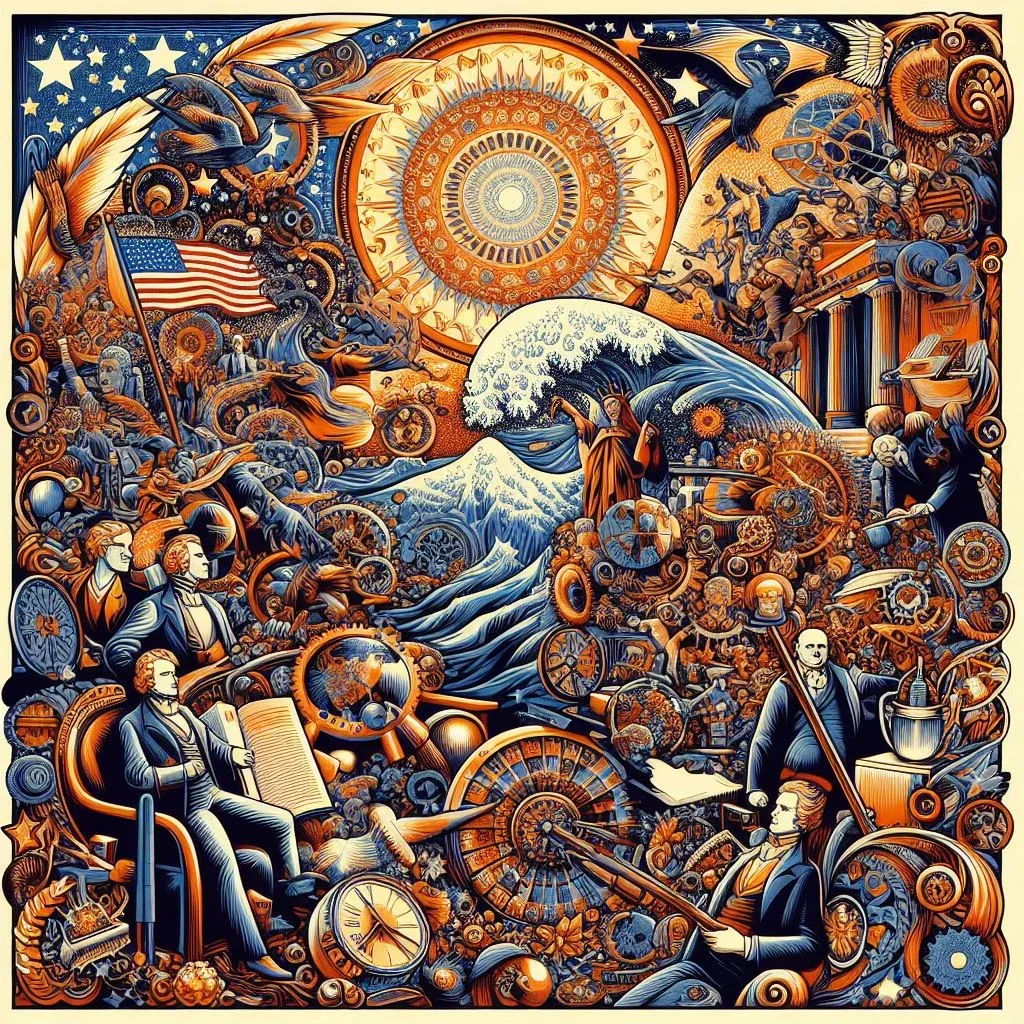
But achieving independence was only the first step. The hard work of building an independent nation, with solid and stable political and social structures, soon became a pressing need. The leadership of D. Pedro I, who chose to remain in Brazilian lands, contrary to Portugal's orders, symbolized this new phase of Brazilian politics, marked by the determination to create its own governance, distinct from that to which it had previously been subjected.
Brazil faced, however, the challenge of overcoming its colonial legacy and organizing its internal political structure. A constituent Assembly 1823 played an essential role in guiding that path, although its early dissolution by D. Pedro I highlighted the internal tensions and divergences of the new nation. The fear was to replicate the fractured fate of the former Spanish colonies, which fragmented into several independent countries.
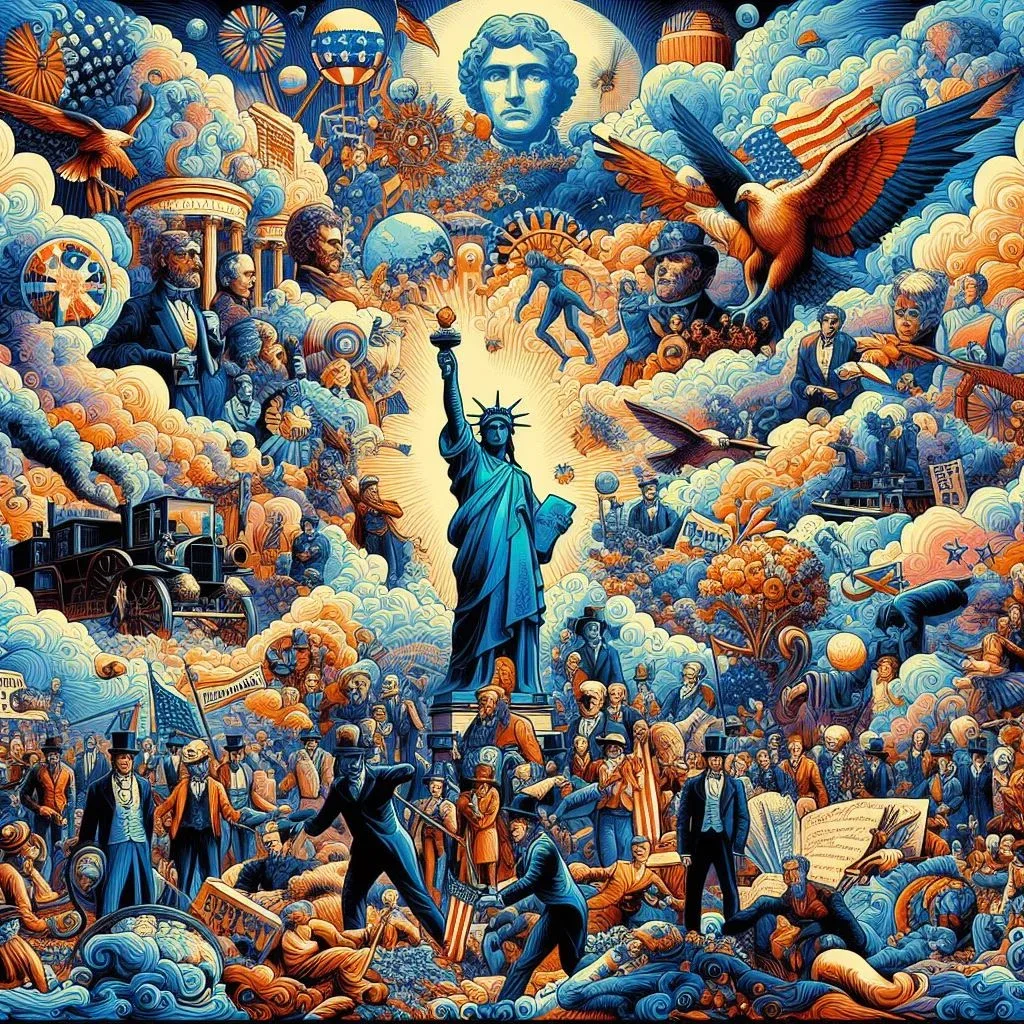
O international recognition of Brazil's independence also constituted a decisive chapter in the support of national sovereignty. Led by the United States, which envisioned the Brazilian independence As a counterweight to growing British influence in Latin America, countries gradually recognized Brazil's sovereignty. However, Portugal would only recognize this independence after negotiating compensation, consolidating Brazilian autonomy on the world stage.
- The struggle for the construction of national identity and the configuration of internal politics.
- The crucial role of D. Pedro I and the attempt to balance liberal and conservative ideals.
- The importance of international recognition to assert the sovereignty of the newly independent nation.
However, the nation-building process faced complex nuances, permeating the birth of solid and minimally representative institutions in Brazil. Overcoming the economic and social discrepancies inherited from colonization was combined with the challenge of political and cultural affirmation. We see that the Brazilian independence it was more than an isolated act of rupture; It was the beginning of an intense journey of self-affirmation and political structuring in Brazil.
The Power and Influence of D. Pedro I
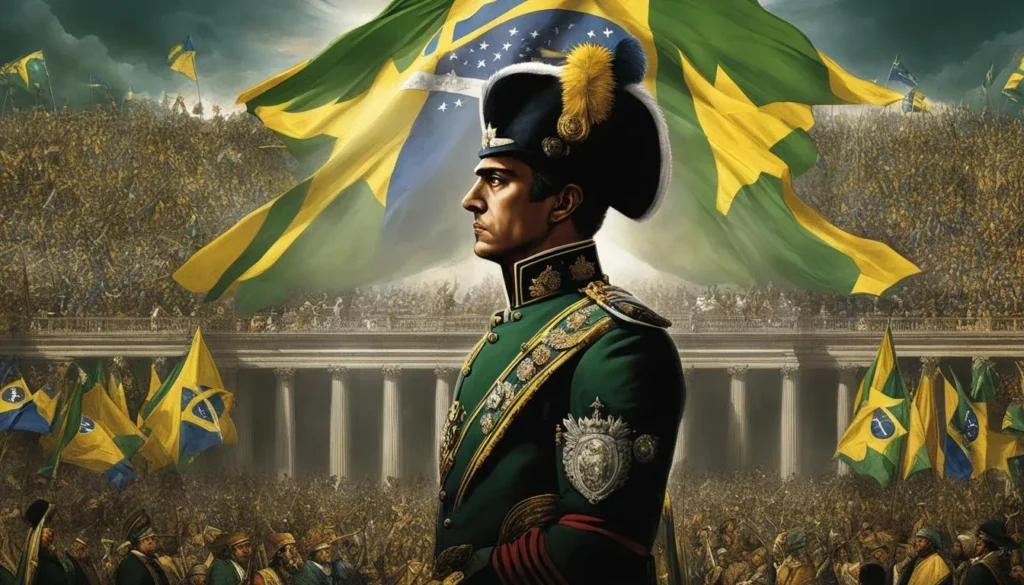
As a student of Brazilian history, I see that the period after independence was a time of intense political and ideological disputes. In this context, the role of D. Pedro I in the dissolution of constituent Assembly was crucial and reflects the complexity of Brazilian politics from that time. The emperor, feeling threatened by constituents who wished to limit his powers, did not hesitate to close the Assembly in an act that resounded with echoes of absolutism European in the tropical lands of Brazil.
D. Pedro's role in the dissolution of the Constituent Assembly
In 1823, tension between the monarch and the constituent Assembly became more intense. The constituents were inclined towards building a nation with principles that restricted monarchical power, dreaming of a constitution that represented the liberal ethos of the time. However, D. Pedro I had other visions for the emerging nation:
“Independence or death”, proclaimed D. Pedro I, and with the same vehemence, he sought to preserve the centralized power in the hands of the Emperor of Brazil.
The influence of absolutism it was evident in the actions of the emperor, who acted according to the old imperial paradigms of power.
Centralization of power and absolutist influence
The fear of a Brazil fragmented into several republics, as was the fate of several former Spanish colonies, weighed on the decisions of D. Pedro I. The strategy was thus to centralize power, a move that would have repercussions for decades in Brazilian politics. This fear is captured in the following speech by the monarch:
“There is no security for the State without a strong government, and only I can embody it”, could be the words attributed to D. Pedro I, illustrating his political thought.
With this thought, D. Pedro I, the first Brazilian emperor, reinforced his desire for a centralized power, essential, according to him, to maintain the unity and territorial integrity of the country.
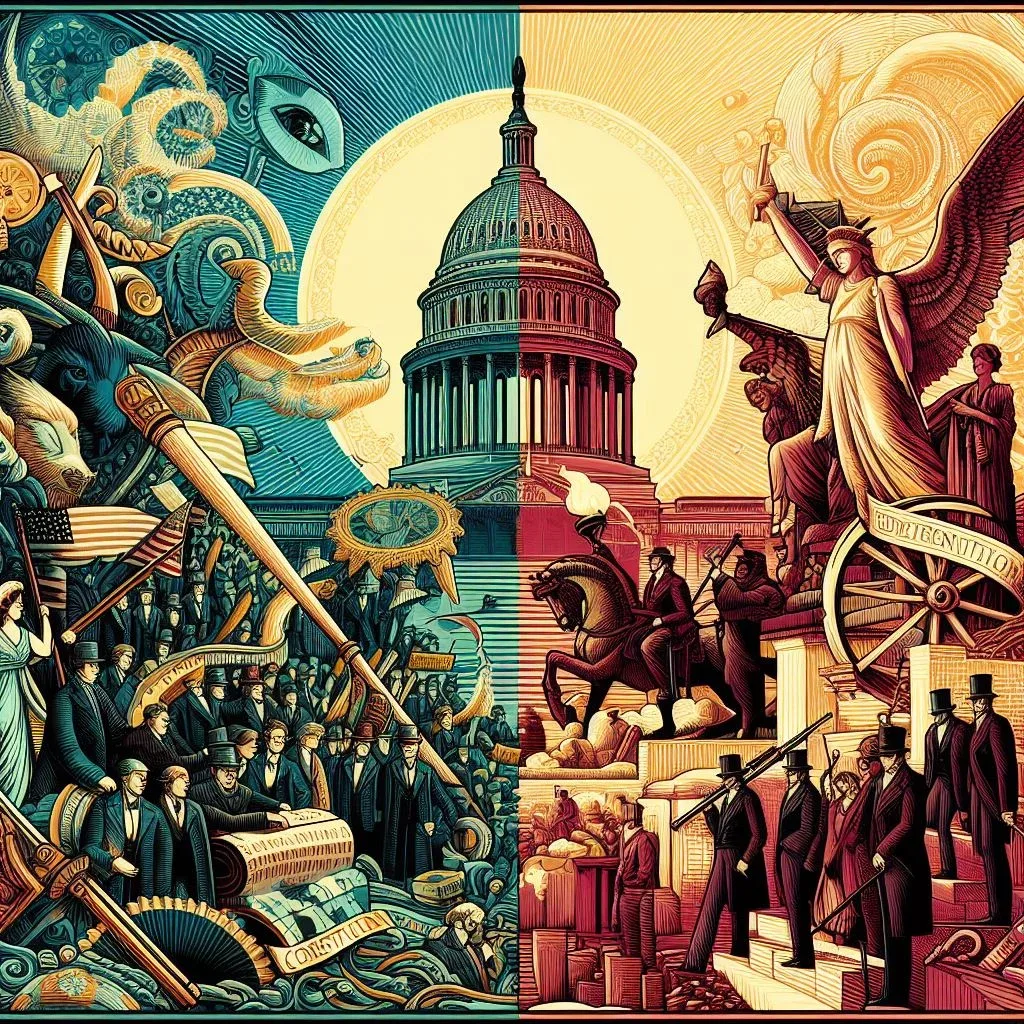
- His influence on politics occurred not only in decrees and actions, but in the popular imagination as the hero who refused to be subjugated by the old metropolis;
- However, his government reflected the complexity of a Brazil newly born from a colony, with vast distances and regional differences to reconcile;
- Your vision of a centralized power it was a response to this complexity, hoping to keep the provinces aligned under a single flag.
The creation of the four powers in the Constitution of 1824, especially the Moderator, with which D. Pedro I could dissolve the constituent Assembly and intervene in other powers, was emblematic of this absolutist influence that he assumed in Brazilian politics during his reign. The emperor was seen by many as a bulwark of the absolutism, at a time when many were calling for more freedoms.
| Year | Event | Impact on Brazilian Politics |
|---|---|---|
| 1823 | Dissolution of constituent Assembly | Consolidation of centralized power in the hands of D. Pedro I |
| 1824 | Establishment of the Constitution of 1824 | Inclusion of the Moderating Power and strengthening of the imperial figure |
It is undeniable that the scenario witnessed a clash of wills and ideals – between the desires of a leader who did not want to have his wings cut off and of a people thirsty for full democracy. The figure of D. Pedro I and his decisions indelibly shaped the profile of the Brazilian politics, at a time when the word “freedom” was beginning to gain a new connotation in the Americas.
The Divergences in the Constituent Assembly of 1823
In my analytical look at the political history of Brazil, I observe that the Constituent Assembly of 1823 It was a real stage for political differences. Such disagreements were rooted in the currents of thought that defined the time: the conservatism and the liberalism.
On the one hand, we had the figure of José Bonifácio, who, symbolizing the conservatism, advocated for the centralization of political power and the establishment of a census vote that would exclude the less fortunate from political participation. On the other hand, Gonçalves Ledo, leader of the radical liberals, defended direct election and expanded autonomy for the provinces, in a clear inclination towards liberalism.
“The fracture between these two ideals showed the clear divergence between the persistence of the old regime and the drive to renew and democratize.”
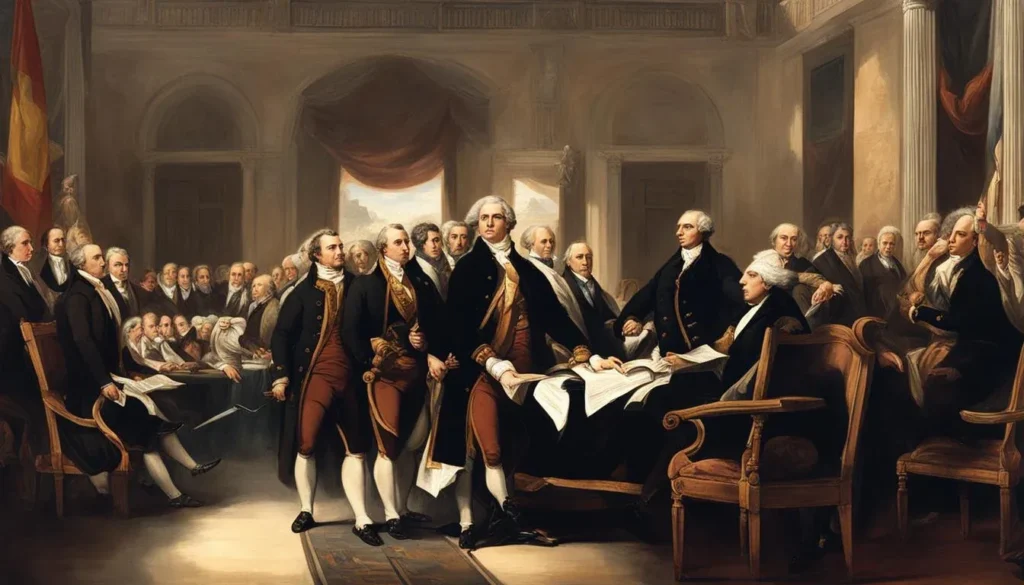
The sessions of constituent Assembly they became true arenas where the direction of our nation was debated. The conservation of ancient practices and the struggle for modernization reflected the broader battle taking place in the world between monarchists and liberals, between the divine right of kings and the sovereignty of people.
| Representative | Political Current | main ideas |
|---|---|---|
| José Bonifacio | conservatism | Political centralization, census vote, maintenance of current order. |
| Gonçalves Ledo | Liberalism | Direct elections, greater provincial autonomy, political and social reforms. |
The dispute between the conservatism represented by José Bonifácio and Gonçalves Ledo's liberalism was more than an ideological clash. It was a manifestation of the social, economic and cultural tensions that were unfolding in Brazil and throughout Latin America at the beginning of the XNUMXth century.
- Political centralization sought to maintain the status quo and the interests of dominant elites;
- Liberalism sought greater representation and more open and accessible political participation;
This clash in Constituent Assembly of 1823, full of political differences, was instrumental in shaping Brazil's character as an empire in its early post-independence years. Thus, I can say that the Assembly was a microcosm of the forces that would define Brazil's political destiny in the following years.
Conservatism Versus Liberalism at the Time
In my analysis of the political ideas of 1824, I observe that the clash between conservatism and liberalism shaped not only the political panorama of that time, but also the very essence of political philosophy which permeated the drafting of the Constitution of 1824. While conservatism wished to preserve power structures and a stratified society, ideas leveraged by figures such as José Bonifácio, liberalism, represented by leaders such as Gonçalves Ledo, sought to dilute such barriers, advocating for greater provincial autonomy and direct elections.
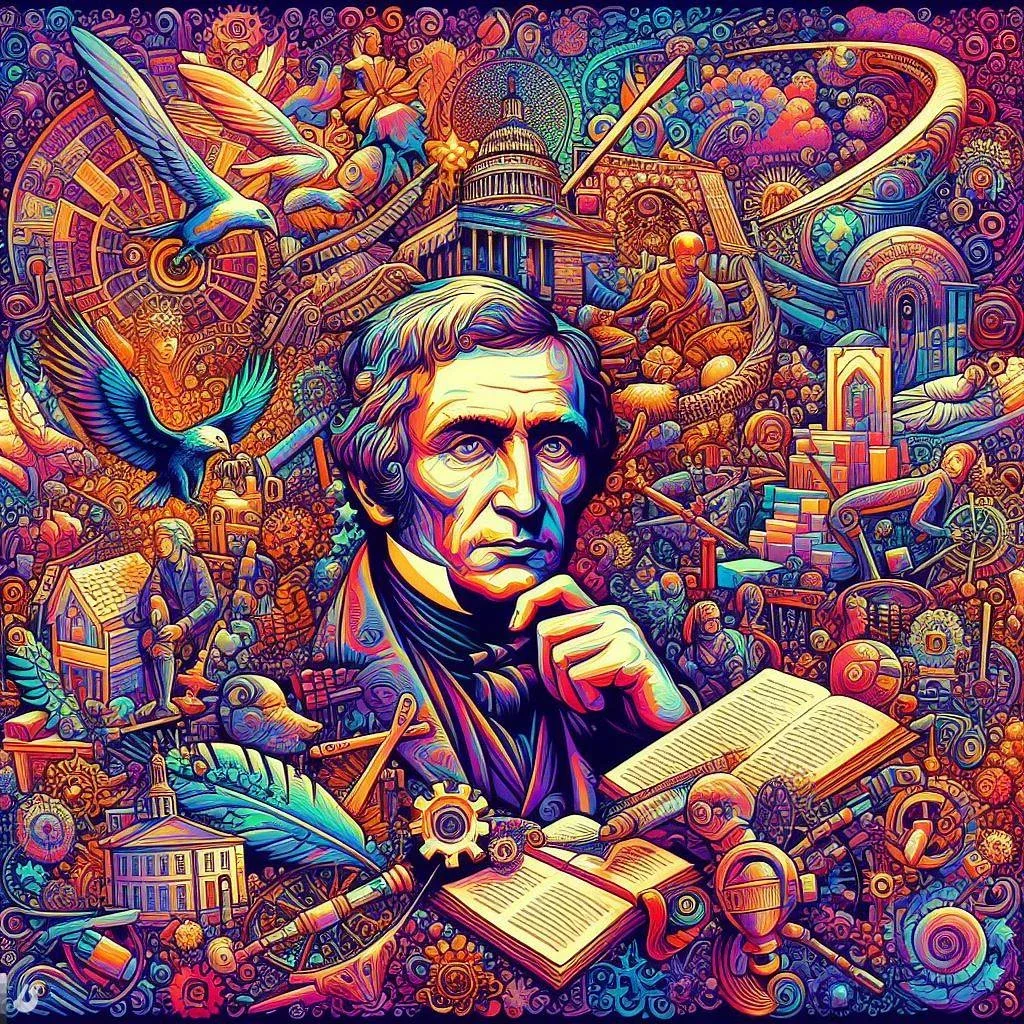
These political ideas contrasts highlight both the rise of Enlightenment philosophy and the reluctance to abandon old forms of governance. Side by side with the development and expansion of liberalism, there was a firm movement of conservatism that feared the loss of control and fragmentation of an empire still in its infancy. The Charter of 1824 reflects this ideological clash, by establishing structures that, on the one hand, point towards modernization, and on the other, ensure the concentration of power.
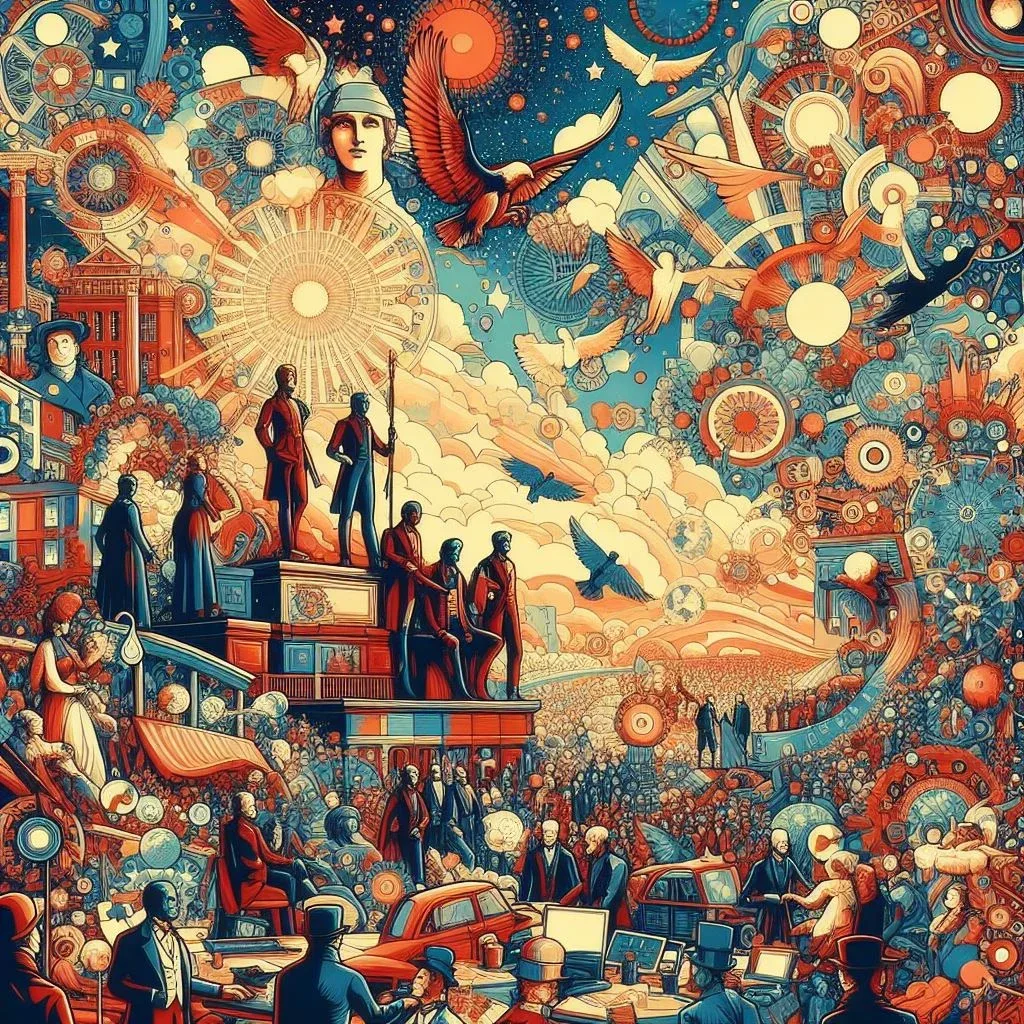
The influence of these currents on Brazilian politics From then on it was immense, designing a Constitution that, instead of completely breaking with the past, tried to reconcile – not always harmoniously – the desire for freedom and authoritarian practices. Thus, diving into the pages of history, we better understand the roots of our political structures and how the tensions of yesteryear still resonate in our current situation.
FAQ
What are the main political and philosophical ideas present in the Constitution of 1824?
The Constitution of 1824 was marked by unitary and hereditary monarchical thinking, opposing several previous Enlightenment ideals, such as the separation of powers and popular sovereignty. The constitutional text also reinforced the centralized power of the monarch and established Catholicism as the official state religion, postulating a clear absolutist influence.
What is the historical context in which the Constitution of 1824 was promulgated?
After Proclamation of Independence In 1822, Brazil sought to build its own national and political identity, in a movement to assert itself as an independent nation. The context was one of struggles for international recognition and for overcoming the colonial legacy. The Constitution of 1824 was configured as an instrument to consolidate the independence and political structure of the Empire of Brazil.
What was the role of D. Pedro I in drafting the 1824 Constitution?
D. Pedro I played a decisive role in the constitutional process by dissolving the Constituent Assembly of 1823 and imposing a charter consisting of his own ideals, which included maintaining strong leadership and confronting provincial revolts. His desire for more authority was fundamental in creating a document that reflected the centralization of power and traits of his absolutism.
How did political differences influence the debates in the Constituent Assembly of 1823?
During the Constituent Assembly of 1823, significant conflicts arose between conservative and radical liberal groups regarding the structure and form of the Brazilian imperial government. Conservatives, seeking to preserve the unity and stability of the Empire, proposed limitations on voting and a strong central power. Liberals wanted greater autonomy for the provinces and direct elections.
In the clash between conservatism and liberalism, which ideas prevailed in the 1824 Constitution?
In the Constitution of 1824, conservative ideas prevailed with a strong influence of D. Pedro I's desire for a centralized government. The constitution established an exclusive moderating power of the emperor, as a fourth power, in addition to the legislative, executive and judiciary, which limited the division and independence between state powers, moving towards a more conservative and less liberal political model.






